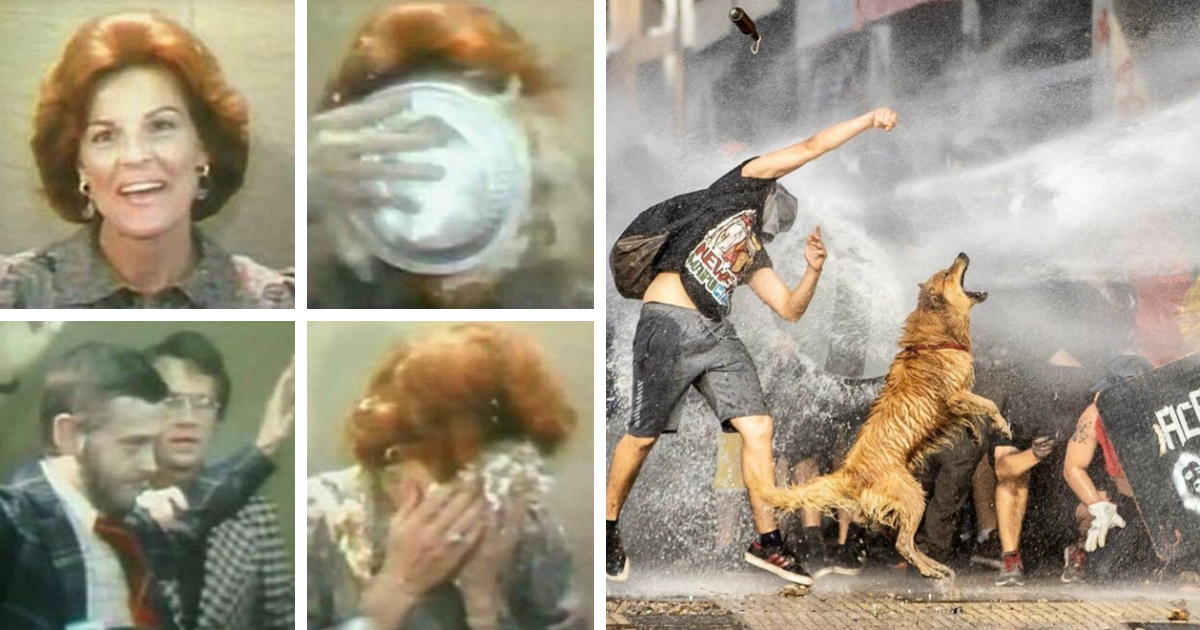
30 Inspiring Moments Where Regular People Proved That They Are Anything But Ordinary
History books often highlight kings, generals, and politicians, but the everyday struggles of working people are too often left untold. That’s why the Working Class History Instagram account has become such a powerful space, shedding light on the stories of ordinary men and women who fought for justice, dignity, and fair treatment, often against overwhelming odds.
By curating photographs, documents, and lesser-known anecdotes, the Insta page keeps alive the memory of those who risked everything to demand better lives for themselves and future generations. It’s a reminder that progress has never come easily; it was earned through the sweat, sacrifice, and solidarity of countless unsung heroes.
Today, as we scroll through these powerful posts, we’re not just looking back. We’re paying tribute to those who walked before us, while also recognizing the struggles that continue today. Because the fight for fairness, respect, and justice is ongoing, and every worker’s story matters.
#1
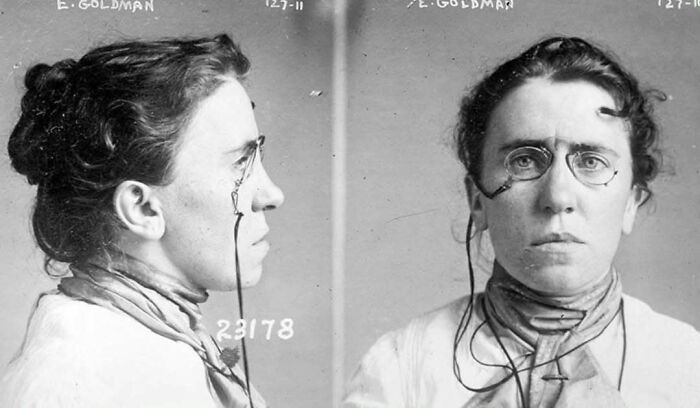
Image source: workingclasshistory
On 11 February 1916, Lithuanian-born Jewish anarchist Emma Goldman was arrested in New York City for distributing information on birth control. She was technically charged with breaching the Comstock Act, which banned “obscene” material from the mail or from being transported across state lines.
Goldman’s arrest came as she was due to deliver a public lecture on family planning, which was a key concern for working class people. Radicals argued that family planning was essential for working class people to be able to have an acceptable standard of living, and believed that authorities opposed birth control so that there would be an oversupply of labour to keep down wages and fill the army.
Emma Goldman decided to defend herself in court, and used the trial to generate large amounts of publicity for her message. She was eventually convicted, and rather than pay a $100 fine she chose to serve 15 days in prison.
#2
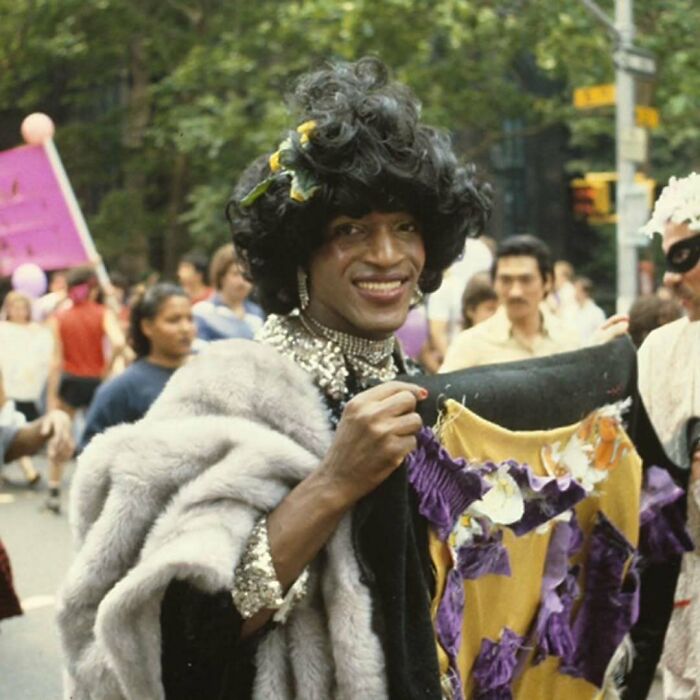
Image source: workingclasshistory
The Stonewall National Monument has removed mention of trans people from its website due to the Trump administration’s vicious attacks on trans people’s rights to exist. Trans people were a central part of the Stonewall rebellion, and played leading roles in the subsequent gay liberation movement which led to the modern LGBTQ+ movement. We cannot let governments erase trans people from history – we have to keep these stories alive ourselves.
#3
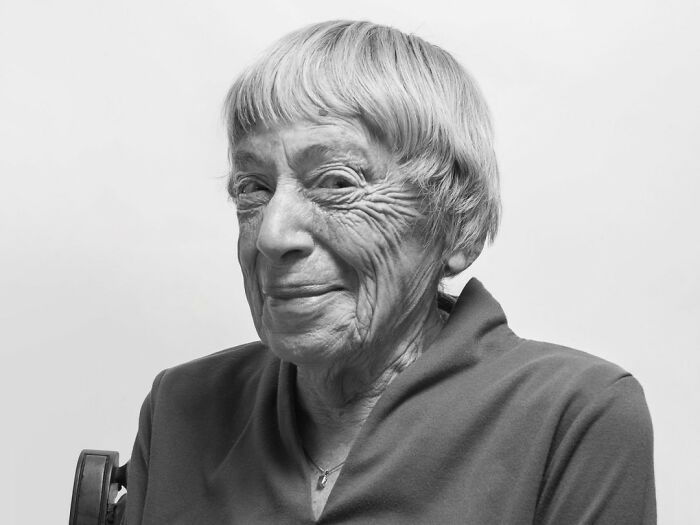
Image source: workingclasshistory
On this day, 21 October 1929, anarchist, feminist, poet and world-renowned sci-fi and fantasy novelist Ursula K. Le Guin was born in Berkeley, California. Le Guin produced a huge body of work, including seminal novels like The Dispossessed, and maintained her radical views right up until her death in 2018.
Le Guin was always keen to remind people not to lose hope: that however bleak the situation appears, we can make a difference. This came across in a particularly powerful way in her 2014 speech at the national book awards: “We live in capitalism. Its power seems inescapable. So did the divine right of kings. Any human power can be resisted and changed by human beings. Resistance and change often begin in art, and very often in our art, the art of words.”
#4

Image source: workingclasshistory
On 14 October 1977, anti-gay crusader Anita Bryant was “pied” in the face by Thom Higgins, a gay rights activist.
Bryant, who was already well-known as a singer, led Save Our Children, a homophobic campaigning group which successfully overturned legal protections for LGBT+ people in Dade County, Florida.
Bryant had declared about homosexuality: “I will lead such a crusade to stop it as this country has not seen before.”
After being pied, Bryant burst into tears and began praying.
Bryant was also brand ambassador for Florida orange juice, which then became subjected to a mass boycott campaign. Gay bars replaced screwdrivers (vodka and orange juice cocktails) with “Anita Bryants” – made with vodka and apple juice, with the profits donated to the campaign.
Bryant’s lucrative orange contract subsequently lapsed and her marriage failed, which caused her to be ostracised by some Christian fundamentalists who did not approve of her divorce.
Later in life, Bryant’s homophobic views softened, and she stated she was “more inclined to say live and let live”. In 1998, Dade County reintroduced legal protections for LGBT+ people, and efforts by Christian groups to overturn them failed.
#5
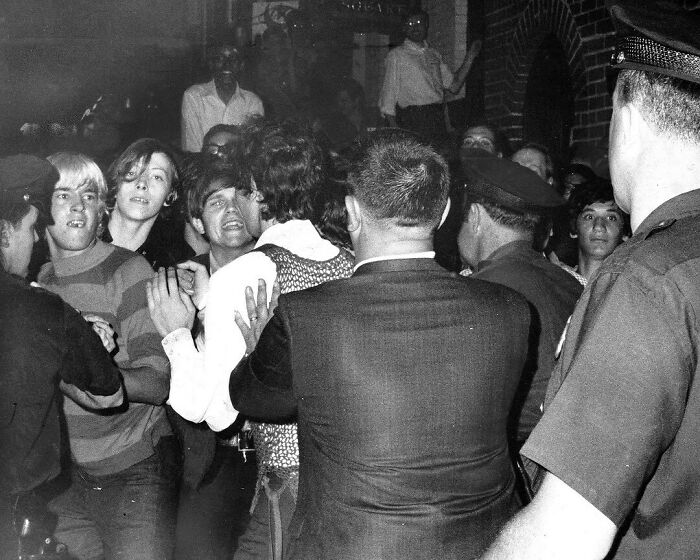
Image source: workingclasshistory
On 28 June 1969, the Stonewall rebellion began in the early hours. The New York Police Department, as part of its policy of closing gay bars, raided the Stonewall Inn, which had a substantial poor and working class LGBT+ clientele. However, for the first time in the city, rather than submitting to arrest, a crowd began to gather around the police. Inside the bar, gender nonconforming people, trans women and lesbians began resisting invasive body searches. And outside a butch lesbian fought back against police when they arrested her, calling on the crowd that had formed to “do something.” According to some eyewitnesses and her own account, this individual was Stormé DeLarverie, a biracial lesbian and drag performer, who was known as a “guardian of lesbians” in the Village, although this is disputed by others who point to the fact that the only police record for a lesbian arrested that night was of a Marilyn Fowler.
The crowd, which included a significant number of Black, Latine, and white LGBT+ patrons and passersby, then began to physically fight the police, triggering riots that lasted for six days. Those involved in the disturbances included activists like Marsha P. Johnson and John O’Brien, popular folk musician Dave Van Ronk, as well as many others.
In the aftermath, participants and other LGBT+ radicals set up the Gay Liberation Front, which revolutionised the gay rights movement. They organised anniversary protests on June 28 the following year in New York, Los Angeles, San Francisco, and elsewhere. This became the annual Pride celebration that continues to this day all over the world.
#6

Image source: workingclasshistory
On 24 May 1990, the car of revolutionary construction worker and environmentalist Judi Bari was bombed, severely injuring her and wounding a colleague, Darryl Cherney.
They had been campaigning to protect ancient redwood forests in California from logging companies, and had received death threats and had their car rammed by a logging truck previously. Despite it being a clear attempt to m****r them, the FBI arrived on the scene almost immediately and attempted to frame them for their own attempted assassination.
Bari, a member of the Industrial Workers of the World union and direct action environmentalist group Earth First!, died of cancer in 1997, having lived in constant pain since the attack. Several years later Cherney and Bari’s families won a civil rights case against the FBI for the frame job and were awarded $4.4 million.
#7
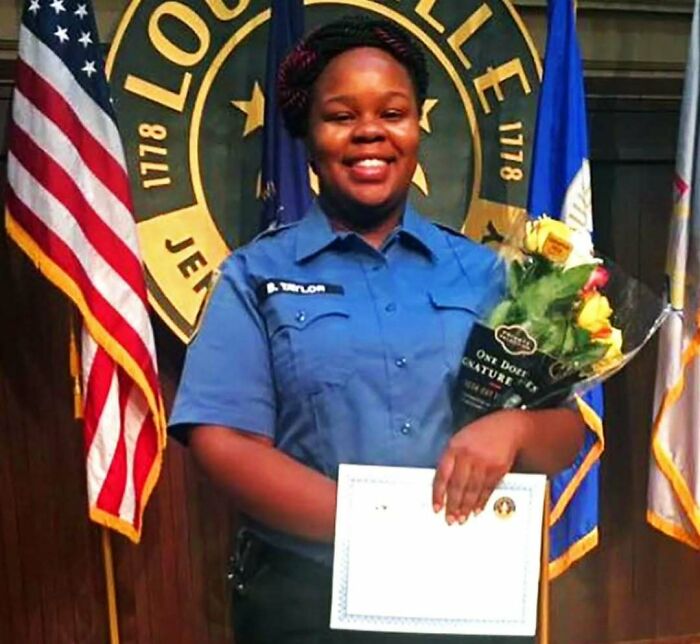
Image source: workingclasshistory
On 13 March 2020, emergency medical technician Breonna Taylor, was k**led by police in Louisville, Kentucky. Taylor, who was Black, worked full-time in the emergency room Department of the University of Louisville Jewish Hospital, as well as working part-time at Norton Healthcare.
At 1 AM on March 13 Louisville police broke into her apartment with a “no-knock” d**g warrant, which allows police to forcibly enter properties without identifying themselves as police or giving any warning. Officers shot Taylor eight times, k**ling her.
Police claimed that Taylor’s boyfriend, Kenneth Walker, opened fire on them first, however despite initially charging Walker with attempted m****r of police, the charge was dismissed, which suggests the claim was fabricated.
Taylor’s family state that after breaking in, officers “then proceeded to spray gunfire into the residence with a total disregard for the value of human life.” Walker was a licensed gun owner, and no d***s were found on the premises.
On her Facebook account, Taylor had recently explain how she felt about her job helping people:
“Working in health care is so rewarding! It makes me so happy when I know I’ve made a difference in someone else’s life!”
News of her k**ling was initially overshadowed by the Covid-19 pandemic, but after the racist m*****s by current or former law-enforcement of other unarmed African-Americans Ahmaud Arbery and George Floyd, many thousands of people took to the streets shouting her name, as well as those of other Black people k**led by police.
#8
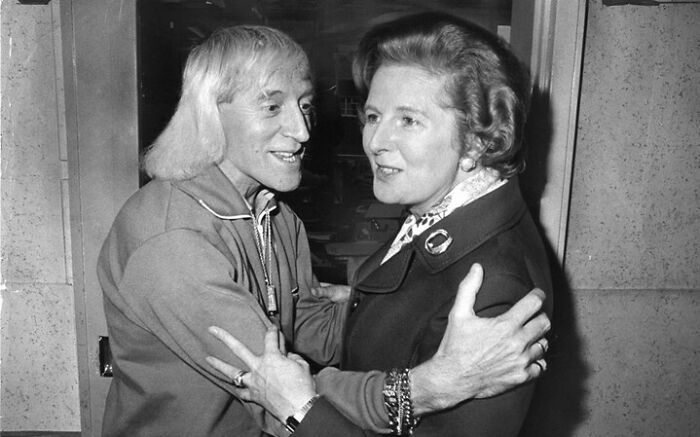
Image source: workingclasshistory
On 8 April 2013, former Conservative prime minister Margaret Thatcher died. Street parties broke out across the UK, particularly in working class areas and in former mining communities which were ravaged by her policies.
Her legacy is best remembered for her destruction of the British workers’ movement, after the defeat of the miners’ strike of 1984-85. This enabled the drastic increase of economic inequality and unemployment in the 1980s.
Her government also slashed social housing, helping to create the situation today where it is unavailable for most people, and private property prices are mostly unaffordable for the young.
Thatcher also complained that children were “being cheated of a sound start in life” by being taught that “they have an inalienable right to be gay”, so she introduced the vicious section 28 law prohibiting teaching of homosexuality as acceptable.
Abroad, Thatcher was a powerful advocate for racism, advising the Australian foreign minister to beware of Asians, else his country would “end up like Fiji, where the Indian migrants have taken over”.
She hosted apartheid South Africa’s head of state, while denouncing the African National Congress as a “typical terrorist organisation”.
Chilean dictator general Augusto Pinochet, responsible for the r**e, m****r and torture of tens of thousands of people, was a close personal friend.
Back in Britain, she protected numerous politicians accused of p*******a including Sir Peter Hayman, and MPs Peter Morrison and Cyril Smith. She also lobbied for her friend, serial child a****r Jimmy Savile, to be knighted despite being warned about his behaviour. Margaret Thatcher was eventually forced to step down after the defeat of her hated poll tax by a mass non-payment campaign. Pictured: Jimmy Savile welcoming Thatcher to hell, reportedly.
#9
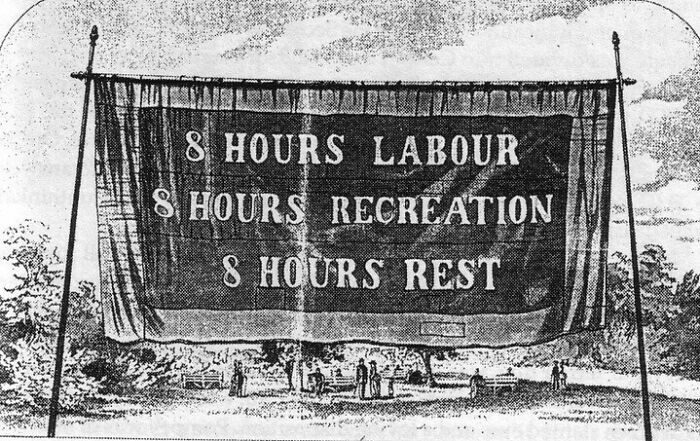
Image source: workingclasshistory
On 21 April 1856, stonemasons in Melbourne, Australia, went on strike demanding a maximum eight-hour working day – down from 10 hours per day Monday-Friday with eight hours on Saturday.
They marched from their construction site, the Old Quadrangle building at the University of Melbourne, brandishing a banner demanding “8 hours work, 8 hours recreation, 8 hours rest”.
The workers were extremely well organised, and were soon successful in achieving their goal, with no loss of pay, for workers engaged in public works in the city.
They celebrated on Monday 12 May, the Whit Monday holiday, with a parade of nearly 700 people from 19 trades. In 1903, workers in Ballarat, Victoria, erected an 8 hour day monument, commemorating the movement. Pictured: The Melbourne eight-hour banner, 1856
#10
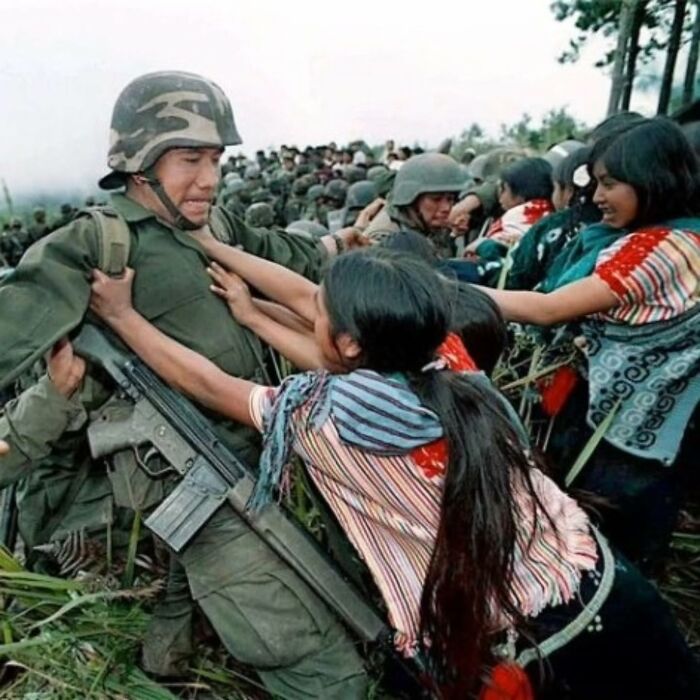
Image source: workingclasshistory
On 1 January 1994, the Zapatista uprising began, when Indigenous peoples in Chiapas, Mexico rose up and began reclaiming land. As the North American Free Trade Agreement was due to come into effect, around 1000 members of the Zapatista National Liberation Army (EZLN) occupied the towns of Altamirano, Las Margaritas, Ocosingo, and San Cristobal de las Casas.
They released a statement declaring: “For many years, dictators have engaged in an undeclared genocidal war against our people. For this reason, we ask for your participation and support in our struggle for jobs, land, housing, food, health, education, independence, liberty, democracy, and justice, and peace. We will not stop fighting until these basic demands are met and a free and democratic government rules in Mexico.”
The rebels battled 14,000 Mexican colonial troops and police, and took over municipal buildings. In San Cristobal de las Casas, Zapatistas destroyed land records, and freed over 230 prisoners, most of whom were Indigenous peasants who had been locked up due to land disputes.
After 11 days of heavy fighting, a ceasefire agreement was reached, and between 159 and 300 people were dead. The Mexican army were accused of carrying out summary executions, arbitrary arrests and torture. In their new, autonomous areas, Indigenous peoples took control of their communities, redistributed power and organised new, directly democratic ways of running society. D
espite state repression, violence and massacres, their movement of around 300,000 people remains self-managed to this day.
#11
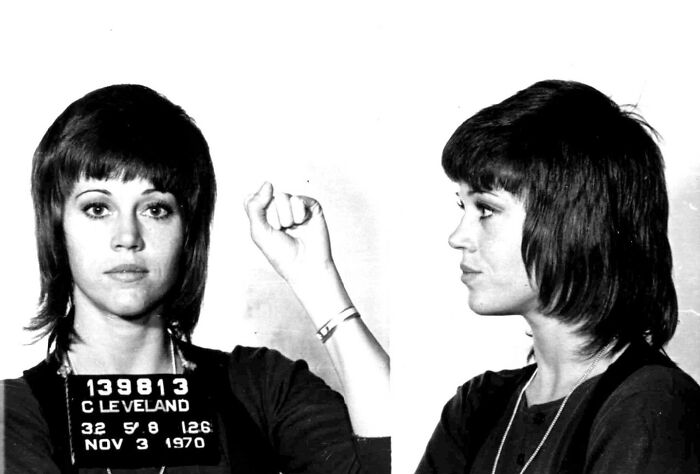
Image source: workingclasshistory
On 2 November 1970, actor and Vietnam GI resistance supporter Jane Fonda was arrested at Cleveland airport as she returned from an event put on by Vietnam Veterans Against the War (VVAW) in Canada and charged with d**g smuggling.
The following day Fonda was also charged with supposedly kicking a police officer, when a more famous mugshot was taken as she raised her fist in defiance at the police.
Both charges were bogus – the “d***s” were vitamin tablets – and they were both later dismissed. Although Fonda is clear that the intention was to discredit her due to her valuable support for the GI anti-war movement.
In addition to being a patron of VVAW, Fonda was a leading organiser of and participant in the FTA (F**k The Army) tour, and anti-war alternative to the USO shows to serving GIs.
#12
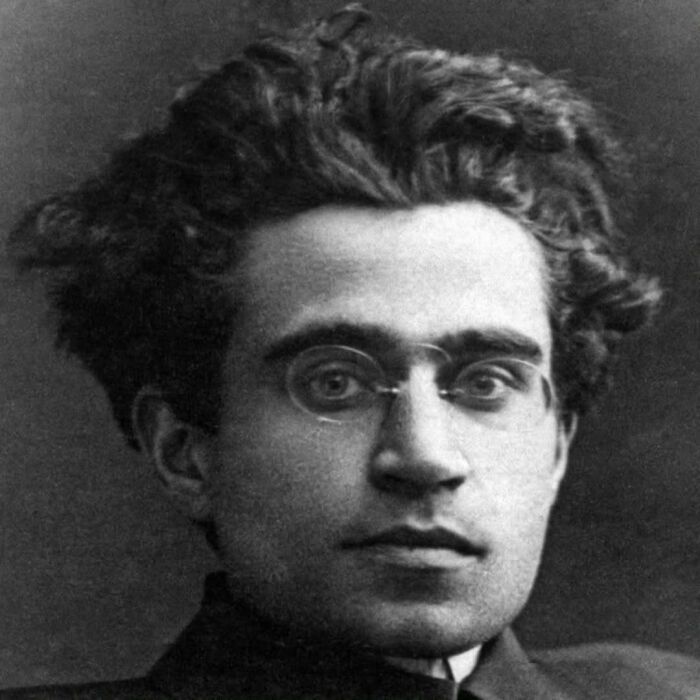
Image source: workingclasshistory
On 22 January 1891, Italian Marxist philosopher Antonio Gramsci was born in Sardinia. One of Gramsci’s most important contributions to the workers’ movement was his theory of hegemony, which describes how the capitalist class maintains its power most of the time not through open violence and repression but through ideology and its domination of culture.
Gramsci was a vocal critic of fascism, and dictator Benito Mussolini, until he was arrested in 1926. He was put on trial, during which his prosecutor stated: “We must stop his brain from working for 20 years.”
However, Gramsci continued his work in prison, writing extensively and evading sensors. In one of his letters from prison, he wrote of the importance of both realism and hope:
“The challenge of modernity is to live without illusions and without becoming disillusioned. I’m a pessimist because of intelligence, but an optimist because of will.”
#13
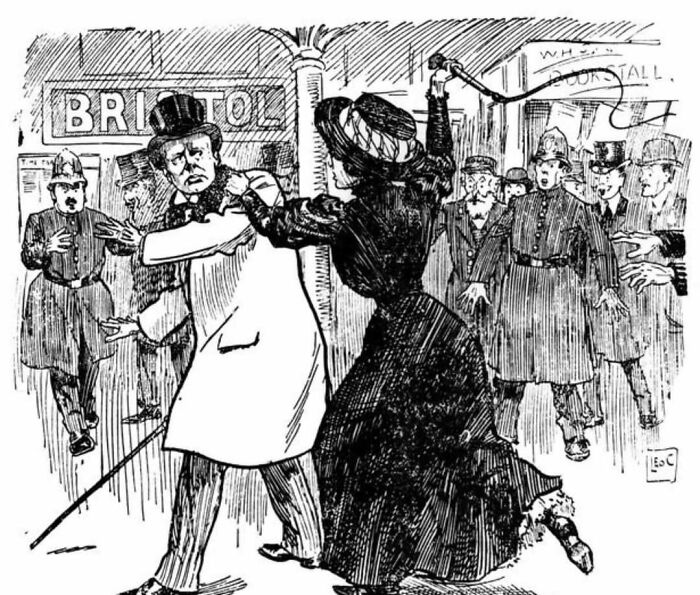
Image source: workingclasshistory
On 13 November 1909, suffragette Theresa Garnett attacked then-Home Secretary Winston Churchill with a horsewhip in Bristol, shouting “Take that in the name of the insulted women of England!”
Garnett was arrested for assault, but as Churchill did not want to appear in court he did not press charges. So instead she was jailed for one month for “disturbing the peace”.
In prison, Garnett joined other suffragettes on hunger strike and was then force-fed. She set fire to her cell in protest, and was then moved to a solitary confinement punishment cell.
#14
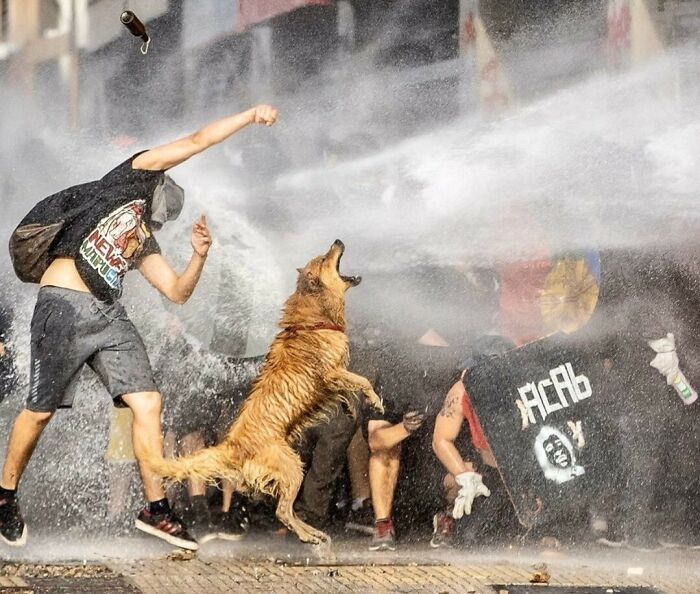
Image source: workingclasshistory
On 16 November 2019, Chilean street “riot dog” Rucio Capucha was injured by police water cannon during a protest in Santiago.
Rucio Capucha was following in the pawprints of legendary protest dog Negro Matapacos, frequently joining riots on the side of protesters and confronting the police. As with other Chilean protest dogs, he was thus often subjected to violent attacks by the police.
On this occasion, video shows he was clearly deliberately targeted by police in a water cannon truck, who blasted him with it as he walked through an empty section of street during a protest.
The blast left him with a contusion on his left lung, but he was cared for by veterinary students and survived. He was then adopted and lived happily with a family until mid 2023, when he passed away due to renal failure.
#15
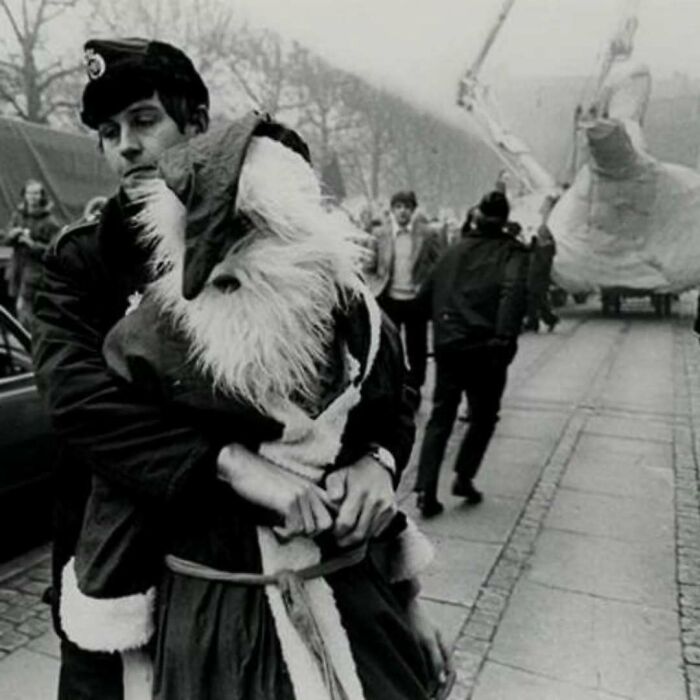
Image source: workingclasshistory
On 18 December 1974, the radical Danish Solvognen theatre group, all dressed as Santas, provoked a near-riot in a Copenhagen department store.
Against a background of an unemployment crisis, groups of Santas went around on roller skates, others attacked state buildings with pitchforks, others visited the elderly in nursing homes and visited children in schools and passed out people’s history books.
The events climaxed when the Santa Claus Army entered the Magasin department store on December 18 and began passing out gifts from the store’s shelves for free to shoppers, saying “Merry Christmas! Today, no one has to pay”.
They justified their actions saying they were returning gifts to the workers who had made them.
When police arrived, they began arresting the Santas, who cried out: “This is bourgeois justice!”. The children who had been watching started crying – likely the desired result by the activists, to educate the children on the role of the police in capitalist society.
#16
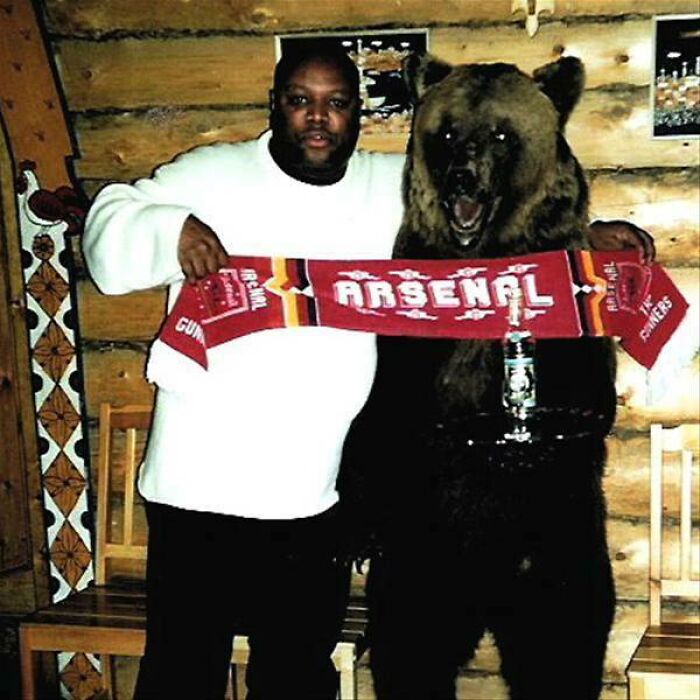
Image source: workingclasshistory
On 14 February 1961, Dainton Connell was born in Brighton. He became famous as a leader of one of the hooligan firms at Arsenal football club. He played a key role in ensuring that the f*****t National Front – which was trying to infiltrate football fans – failed to gain any foothold at Arsenal, often confronting paper sellers. On one occasion he even inserted himself at the head of a National Front demonstration, flying a union jack to mock them.
Connell later became a bodyguard and manager to the Pet Shop Boys. When he died in a car crash aged 46, his funeral was attended by 3,000 people including Arsenal legends like Ian Wright. A memorial plaque to him by the Arsenal stadium was taken down by Islington council.
#17
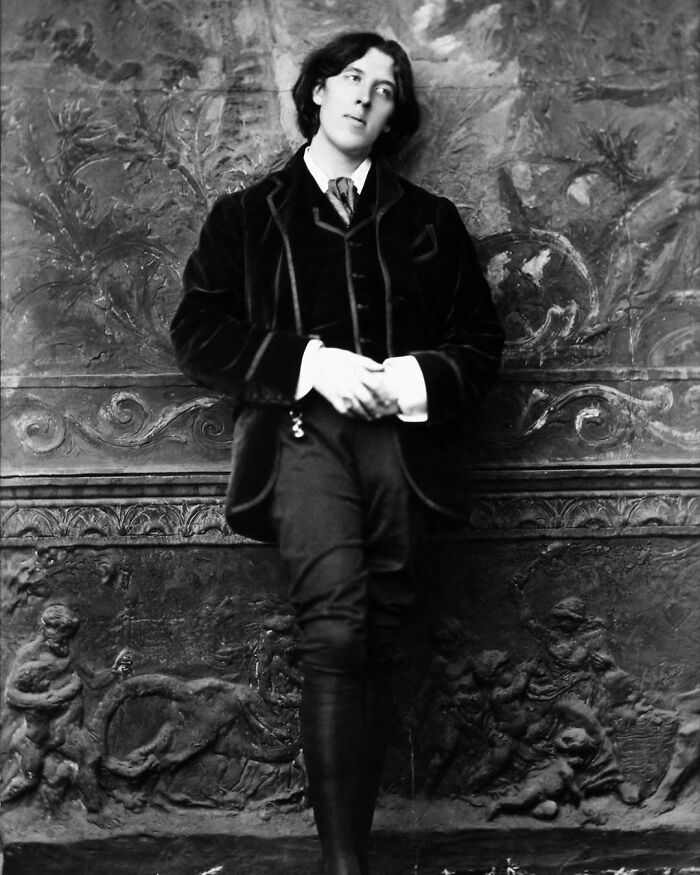
Image source: workingclasshistory
On 25 May 1895, libertarian socialist author Oscar Wilde was imprisoned for two years’ hard labour for “indecency” for having s*x with men.
Though many potential witnesses refused to testify against him, he was convicted, and upon sentencing judge stated: “It is the worst case I have ever tried. I shall pass the severest sentence that the law allows. In my judgment it is totally inadequate for such a case as this. The sentence of the Court is that you be imprisoned and kept to hard labour for two years.”
Wilde’s detention would cause him serious health problems which eventually contributed to his untimely death.
In his essay, The Soul of Man under Socialism, in which he expounds his political ideas, he declares: “Disobedience, in the eyes of any one who has read history, is man’s original virtue. It is through disobedience that progress has been made, through disobedience and through rebellion.”
#18
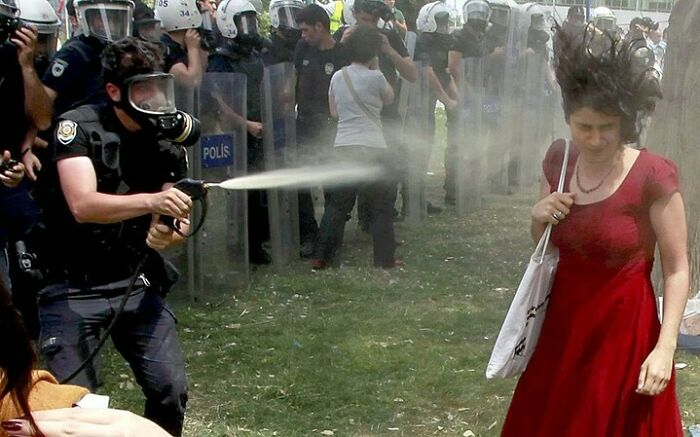
Image source: workingclasshistory
On 28 May 2013 during the Turkish Occupy Gezi protests, the “woman in red”, Ceyda Sungur, was pepper sprayed by police. The photograph of the event, by Osman Orsal, became the defining image of the movement.
The protests began against development of Gezi Park in Istanbul but transformed into a national movement against the increasing authoritarianism of the right-wing government of Recep Tayyip Erdoğan.
A university worker, Sungur didn’t want notoriety, saying “a lot of people who were at the park and they were also tear-gassed… There is not (a) difference between them and I.” She was subsequently arrested for “provoking people to disobey laws”, although the following year the charges were dismissed.
#19
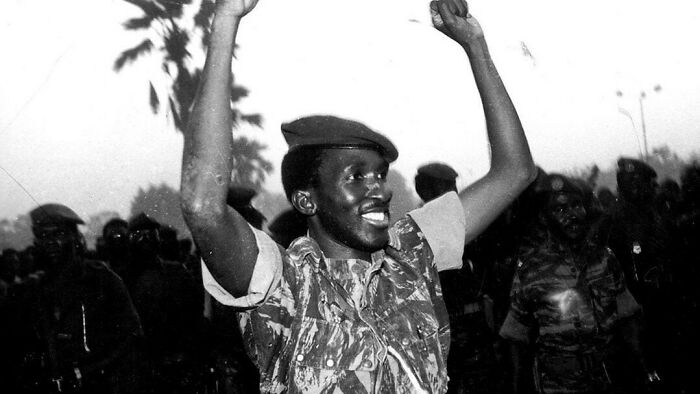
Image source: workingclasshistory
On 15 October 1987, socialist president of Burkina Faso, Thomas Sankara, was assassinated, aged 37. He was k**led in a military coup that is suspected to have been backed by France, the former colonial power.
In just four years, his government attracted mass public support by implementing numerous radical reforms to improve the quality-of-life for poor, working-class people and women. In particular millions of children were vaccinated against meningitis, yellow fever and measles, schools and hospitals were constructed, millions of trees planted to fight desertification, and the country became food sufficient. He reduced his own salary to just $450 per month, and the government reduced wages and perks for senior government officials, implemented quotas to increase the numbers of women in public life, combated female genital mutilation and forced marriages, and nationalised land and mineral resources.
The coup was orchestrated by Sankara’s former colleague, Blaise Compaoré, who established a dictatorship which would rule the country for the next 27 years, and undo many of the previous changes, by privatising public property. His government was backed by the US and France, and received funding from the International Monetary Fund, until it was overthrown in 2014 after a popular uprising.
#20
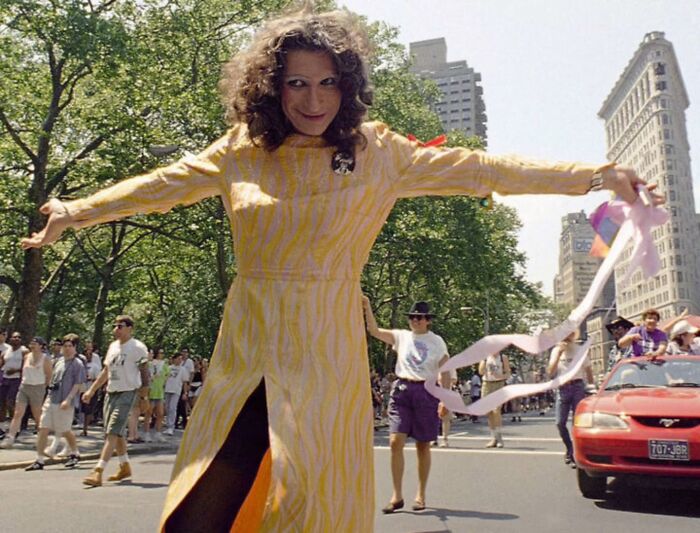
Image source: workingclasshistory
On 19 February 2002, legendary transgender activist, of Puerto Rican and Venezuelan descent, Sylvia Rivera died aged 50 in New York City.
Born in the Bronx, by the age of 11, Rivera ran away from home due to the ridicule faced growing up as a trans youth. Later she began to identify as Sylvia and befriended Marsha P Johnson.
Rivera soon began a large span of work in liberatory action, which included involvement in the Gay Liberation Front, Gay Activist Alliance and Young Lords Organisation. Rivera was involved in protests against homophobia within the Black Panther Party, after which Huey Newton wrote a letter opposing homophobia and supporting gay liberation.
Rivera faced transphobia and discrimination as Pride events gained larger mainstream momentum. This boiled down in an impassioned speech by Rivera known as the “Y’all Better Quiet Down” speech.
In 1971 with Johnson, Rivera co-founded Street Transvestite Action Revolutionaries (STAR), and acted as a mother to many trans houseless youth. After the closure of the STAR house, Rivera moved to the north of New York City and returned to West Village in 1992 after hearing about the death of Johnson.
In 1995 Rivera attempted s*****e by walking into the river Johnson was found in. She then moved into the Transy House in 1997, which was a new home for trans and gender-nonconforming people needing shelter. Here she continued in her activist work up until her passing in 2002 due to liver cancer complications.
Following her death, the impact of Rivera’s activism has been much more widely acknowledged, including by the queer community but also that of homeless, trans, and gender-nonconforming s*x workers. Sylvia Rivera is survived by her partner Julia Murry, the many spaces and organisations named after her, and the community of which she was a crucial part.
#21
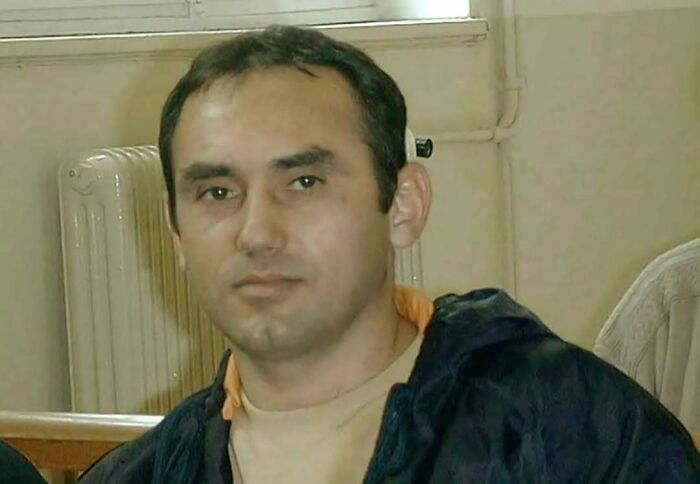
Image source: workingclasshistory
On 17 May 1966, Vassilis Palaiokostas, “the Greek Robin Hood,” was born in the mountain village of Moschofito, Greece.
In the 1990s-2000s he became famous for robbing the rich and handing his takings to the poor — former comrade Kostas Samaras remembers “he and his brother Nikos would stop the car and hand robbery money to immigrants in the street.”
Palaiokostas has been linked to some of the most audacious illegalism in Greek history, including the 1992 Kalambaka robbery (the country’s biggest ever bank heist) and pioneering bossnapping with the ransoms of notorious industrialists Alexander Haitoglou in 1995 and George Mylonas in 2008.
He is even more famous however for his series of prison escapes which earned him a police nickname — The Uncatchable. The most extraordinary of these were in 2006 and 2009, when he escaped from Korydallos Prison not once but twice by helicopter, bringing him international renown.
A folk hero among the working classes of his homeland, he is still free, still on the run, with a 1.4 million Euro bounty on his head.
#22

Image source: workingclasshistory, Bettmann / Getty images
On 13 May 1985, Philadelphia police attacked the home of Black liberation and environmentalist group MOVE with automatic weapons, then dropped a bomb on it, k**ling five adults and six children, destroying 61 homes in the predominantly Black neighbourhood, and making 250 people homeless.
Almost 500 police officers fired over 10,000 rounds of ammunition into the house, which was filled with women and children, while other officers blew holes in the walls with explosives. The police commissioner then ordered the house to be bombed, which they did using an improvised device made from C4 given to them by the FBI.
Only two people survived the blast and ensuing fire: Ramona Africa, and Michael Ward, aged 13. While no officials were prosecuted, Ramona Africa was subsequently jailed for seven years on riot and conspiracy charges. The incident occurred during the tenure of Philadelphia’s first Black mayor, a Democrat named Wilson Goode.
The children k**led were named Katricia Dotson (Tree), Netta, Delitia, Phil, and Tomasa Africa and the adults were Rhonda, Teresa, Frank, CP, Conrad, and John Africa.
In April 2021, it was revealed that anthropologists at Princeton and the University of Pennsylvania had the bones of one of the children, unbeknownst to the families.
#23
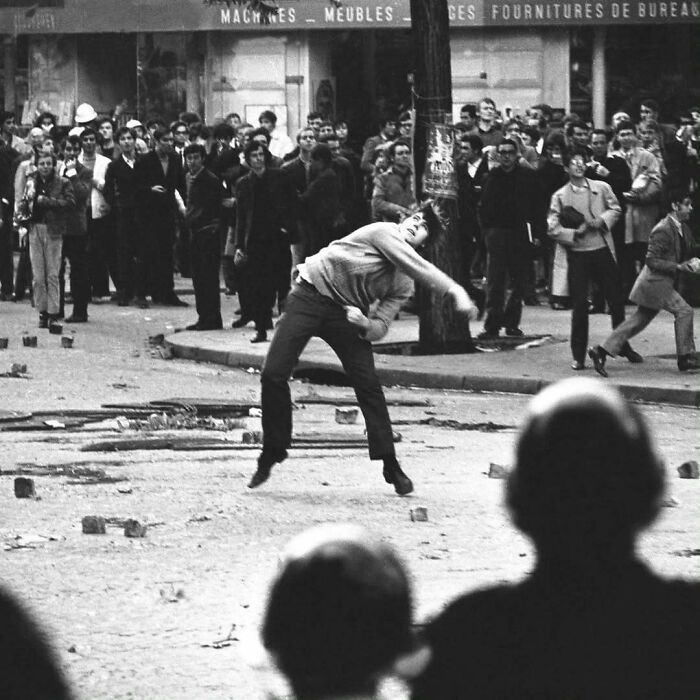
Image source: workingclasshistory
On this day, 6 May 1968, major street clashes took place between students and police in Paris in the early days of what became the May 68 uprising.
Unrest had begun in March in student protest against the Vietnam war at Nanterre University, which soon escalated amid student concerns about other issues as diverse as gender segregation on campus, workers’ rights, and dissatisfaction with capitalism.
Authorities tried to dampen protests by shutting down university campuses, which failed, and student occupations of university buildings spread.
On May 3, police violently raided the occupied Sorbonne, arrested hundreds of students, then attacked other university and high school students in the surrounding streets.
On May 6, thousands of students marched through the Latin Quarter chanting “Free our comrades”. Encountering a police blockade with two water cannons, 1500 demonstrators fought police with cobblestones, forcing the police to retreat. By the evening, high school kids joined students in the streets, as well as some young workers and unemployed people. For example, 30 workers walked off their night shift in a metal plant to join protesters. Eventually, 10,000 protesters, some armed with iron bars, began building barricades to defend themselves from police attacks with teargas.
Meanwhile, the official Communist Party, and some other communist groups, condemned the young people’s “petit-bourgeois adventurism”.
By the end of the day, around 600 students were injured and 422 arrested, and 300 police were injured.
Elsewhere across the country, student strikes and occupations continued to spread, and the movement would ultimately culminate in a general strike with mass factory occupations of up to 10 million workers.
#24
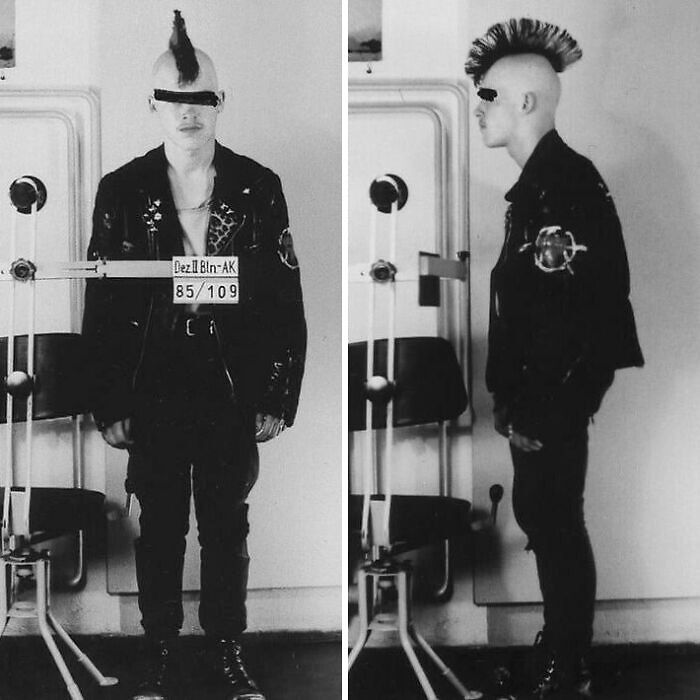
Image source: workingclasshistory
On this day, 12 January 1989, the punk subculture was identified as the primary problem in a “youth analysis” produced by the East German (DDR) government.
In the early 1980s authorities estimated there were around 1,000 punks in the country, and around 10,000 visibly identifiable punk sympathisers, who had developed a national network to exchange information and ideas, and had links with left wing and anarchist punks in West Germany.
Punks were surveilled by the Stasi intelligence service and the political police, forced to sign papers identifying themselves as potential criminals, routinely arrested and interrogated, beaten by police, had their mohawks cut off. They were imprisoned for longer sentences than any activist groups in the 1970s or 80s. For example, one singer in a punk band, Jana Schlosser, was imprisoned by the Stasi for two years for comparing the organisation to the N**i SS. Another former-punk, Juergen Gutjahr, later recalled to Clare Welsh, of Dazed magazine, an encounter he had with the Stasi when he was 17: “They tied me up, put a bag over my head and beat me in the forest.”
Many punks were blacklisted from jobs, and only allowed to work in posts like digging graves or processing hospital waste. Others were banned from public places like youth clubs, restaurants, cafes and bars. Often, punks were stripped of their identification documents and given replacement IDs which restricted travel within the DDR and prevented travel elsewhere in the Eastern Bloc. Some punks who could not be recruited as informants for the Stasi were badjacketed (i.e. rumours were spread by authorities that they were in fact informants).
After the fall of the Berlin wall and the collapse of the DDR, many East German punks took an active part in the squatting movement, occupying homes and properties throughout the city.
#25
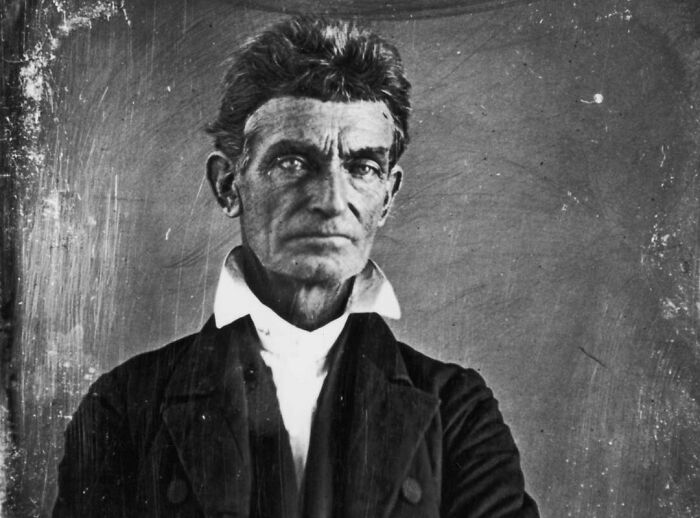
Image source: workingclasshistory
On 2 December 1859, US abolitionist John Brown was executed in what is now West Virginia for his leadership of an armed rebellion against slavery.
Brown and a small band of Black and white fellow abolitionists attempted to seize the federal arsenal of weapons at Harpers Ferry. The weapons would be used to arm enslaved people and abolitionist whites, and set up a chain of forts across the country which could launch raids on enslavers, helping free large numbers of enslaved people then funnel them north to Canada, meanwhile disrupting the slave economy.
On December 2, after a battle with US troops, Brown and his men were defeated. Two of them managed to escape – Osborne Anderson and Albert Hazlett – and the survivors were put on trial for treason, m****r and “conspiring with Negroes to produce insurrection”.
Brown was hanged at 11:15 AM outside the Charles Town jail. On his way to the scaffold he handed a note to one of the guards, which declared: “I John Brown am now quite certain that the crimes of this guilty land: will never be purged away; but with blood.”
In the wake of the attempted uprising, fearing further such attempts, pro-slavery militias formed across the US South. These would soon fight for the Confederacy in the civil war which would break out less than two years later, during which Union troops would sing: “John Brown’s body lies a-mouldering in the grave, but his soul goes marching on.”
#26
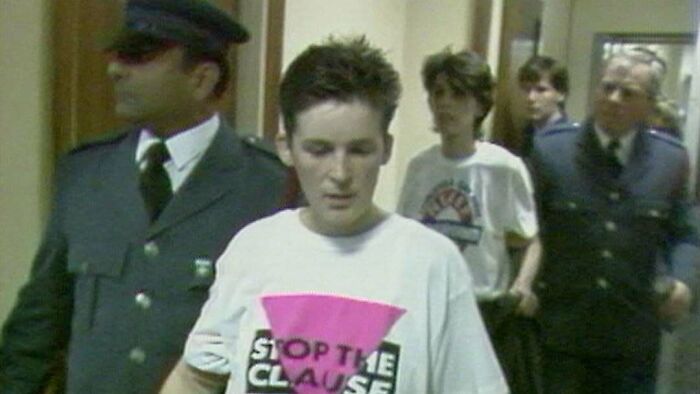
Image source: workingclasshistory
On 23 May 1988, four lesbians, including Booan Temple, burst into a BBC news studio during a live broadcast and called out: “Stop Section 28!” The protest was against the new anti-gay law, Section 28, that was about to go into effect at midnight and had received little if any critical news coverage.
Pushed by Margaret Thatcher’s Conservative government, Section 28 sought to prohibit the “promotion” or “acceptability” of homosexuality in local authorities and schools. While the four women were arrested, they were never charged, likely due to the BBC not wanting to give the protest any further attention.
The homophobic mass media unsurprisingly ignored their message and spun the protest in such a way so as to justify the discrimination of LGBTQ people.
Even still, the protest inspired many LGBTQ people, especially younger folk, to keep up the fight. The law would be in place until 2000 in Scotland and 2003 in England and Wales.
#27

Image source: workingclasshistory
On this day, 26 February 2012, Trayvon Martin, an unarmed Black child, was shot and k**led by a neighbourhood watch volunteer in Sanford, Florida.
Martin was born in Florida on February 5, 1995, and later attended Dr Michael M Krop high school where he played sports, and mathematics was said to be his favourite subject. He had a keen interest in aviation and considered becoming a pilot.
Initially, Sanford police filed no charges against the k**ler. But marches and protests had begun breaking out across the United States, and the Black Lives Matter movement was born. As public pressure grew, charges of second-degree m****r were eventually filed, but the k**ler was acquitted. The k**ler also later sold the gun he used to an anonymous buyer for $250,000, and in 2019 he sued the Martin family and others for $100 million. The case was eventually thrown out of court in February 2022.
#28
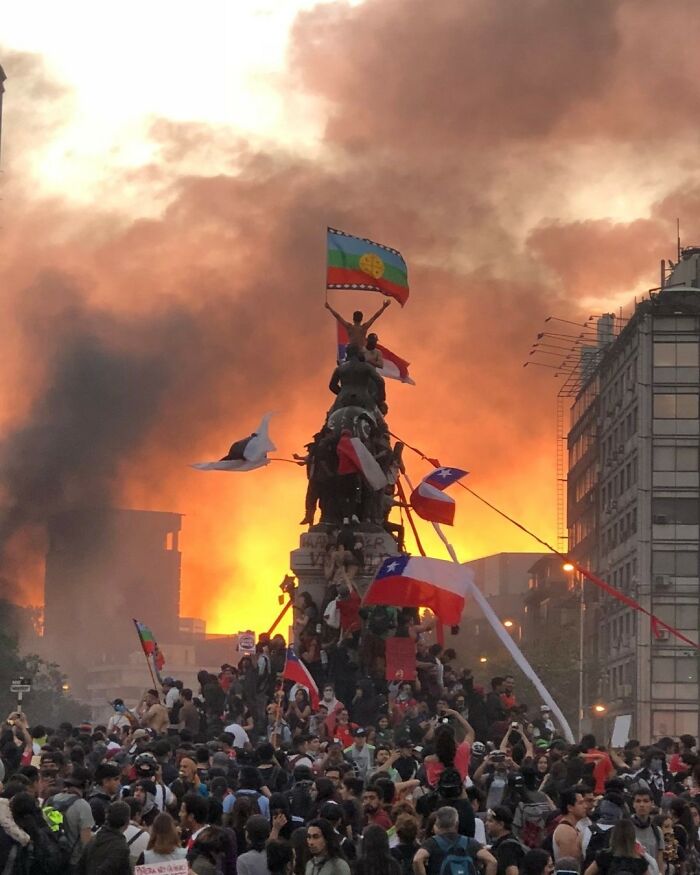
Image source: workingclasshistory
On this day, 18 October 2019, a series of large-scale protests known as Estallido Social (social outburst) began in Chile, one of the biggest uprisings in the country’s history that lasted until March 2020.
While citizen demands focused on social inequality and the ravages of decades of neoliberal policies, the unrest began in the wake of a fare hike on the Santiago Metro on 6 October, after which hundreds of high school students jumped the turnstiles at various stations, calling for fare evasion. After days of clashes between students and police, on 18 October, the right-wing government of Sebastián Piñera announced charges under the state security law, which carries harsh sentences. In response, thousands of people took to the streets, also demanding various improvements to living conditions and an end to abuses by the political and business class. Barricades were built, and acts of arson and looting took place. The next day, the protests spread to all regions of Chile.
State repression was extremely violent and included torture, sexual violence, mutilations and extrajudicial executions, as reports on human rights violations issued by various international organisations found. The actions of the police resulted in 34 deaths, more than 8000 injuries and more than 400 cases of eye mutilation, including Gustavo Gatica and passer-by Fabiola Campillai, who both lost their eyes after direct attacks to the face.
After months of revolt, the demonstrations subsided following an agreement by politicians to organise a referendum on a new constitution, and the outbreak of the Covid-19 pandemic.
In 2020, a plebiscite determined that the vast majority of the country wanted the abolition of the constitution from the dictatorship era. However, since then two proposed constitutions have been rejected and the process for constitutional change suspended.
Several years later, the systemic conditions that provoked the collective discontent remain intact.
#29
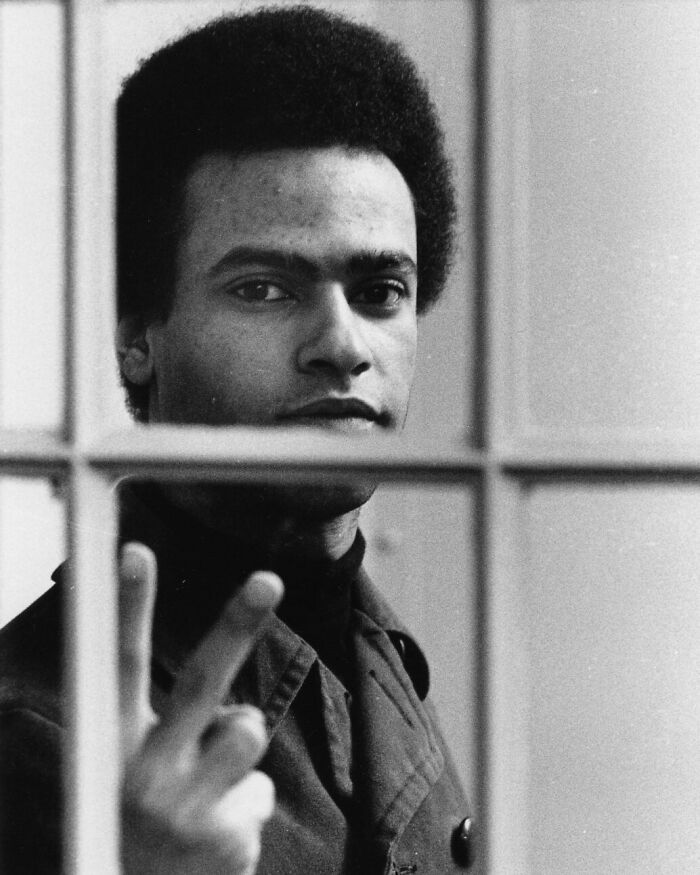
Image source: workingclasshistory
On 17 February 1942, Huey P Newton, founding member of the revolutionary socialist Black Panther Party, was born in Monroe, Louisiana.
Newton described his early activism in the Party, which involved conducting armed patrols to protect Black people from police harassment: “I always carried lawbooks in my car. Sometimes, when a policeman was harassing a citizen, I would stand off a little and read the relevant portions of the penal code in a loud voice to all within hearing distance… If the policeman arrested the citizen and took him to the station, we would follow and immediately post bail. Many community people could not believe at first that we had only their interest at heart. Nobody had ever given them any support or assistance when the police harassed them, but here we were, proud Black men, armed with guns and a knowledge of the law. Many citizens came right out of jail and into the Party, and the statistics of m****r and brutality by policemen in our communities fell sharply.”
Newton himself was shot by the police after being racially abused, and he was then jailed for k**ling a police officer in the ensuing shootout. But following a global campaign for his release, his conviction was overturned on appeal. He was tried twice more, but after the district attorney failed to get a conviction on either occasion he gave up and dismissed the charges.
Later the BPP developed survival programs like free breakfast for children and health clinics while Newton continued to develop important revolutionary theories. He developed the concept of revolutionary intercommunalism for the Party, as opposed to Black nationalism, and was a fierce critic of sexism and homophobia within radical movements, arguing that when people organise “revolutionary conferences, rallies, and demonstrations, there should be full participation of the gay liberation movement and the women’s liberation movement.”
#30

Image source: workingclasshistory
On this day, 1 June 1940, the Greek anarchist feminist, poet and actor Katerina Gogou was born.
As an adult, Gogou opposed the right-wing military dictatorship which took over in 1967, supported workers’ struggles, and was frequently subjected to violence by the police.
Working as a young actor, especially under the dictatorship, Gogou was only able to perform roles which perpetuated right-wing, capitalist and sexist values, like naïve domestic worker, housewife or love interest. After a popular uprising brought down the dictatorship, she was able to perform radically different roles, including in the 1977 film ‘The Heavy Melon’, depicting the new urban working class, for which Gogou one the best actress award at the Thessaloniki Film Festival.
In the 1970s and 80s Gogou was an active supporter of the burgeoning LGBT+ movement, much of it led by trans and gender nonconforming people. Much of her poetry spoke of the lives of rebels, s*x workers and residents of Athens’ Exarcheia district, which remains a radical enclave today.
Gogou died by s*****e in 1993, and thousands of people attended her funeral. After her death, one of her unpublished poems was discovered, which began:
“Don’t you stop me. I am dreaming.
We lived centuries of injustice bent over.
Centuries of loneliness.
Now don’t. Don’t you stop me.
Now and here, for ever and everywhere.
I am dreaming freedom.”






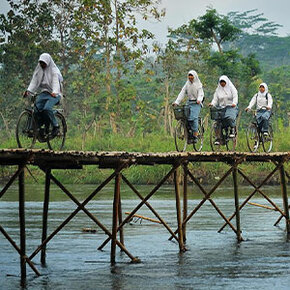










Got wisdom to pour?